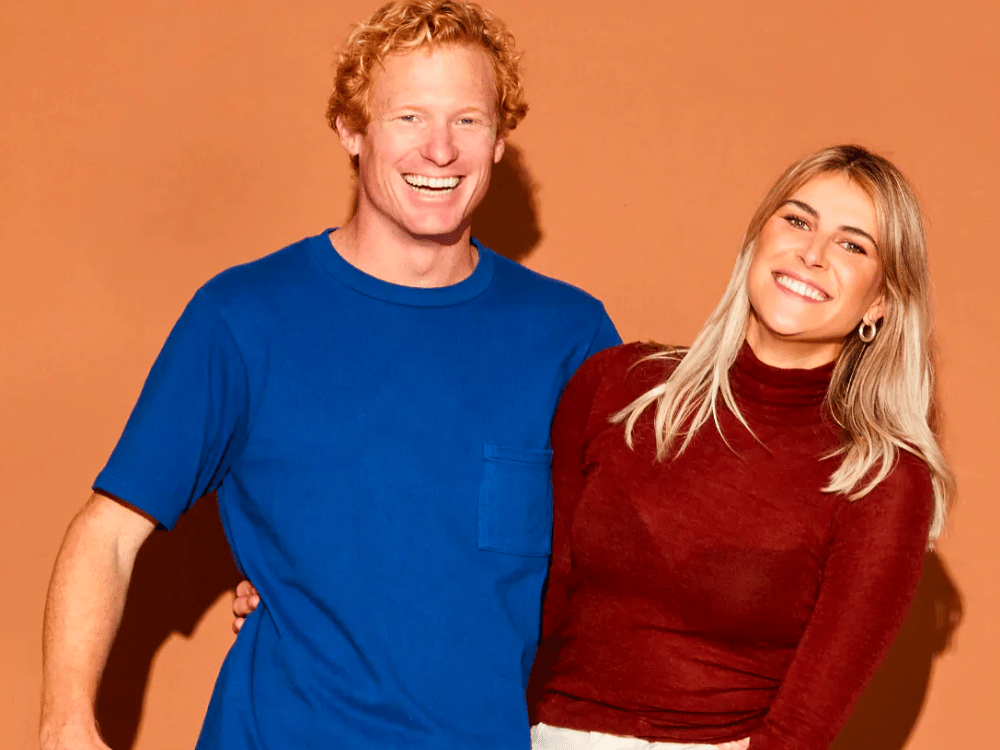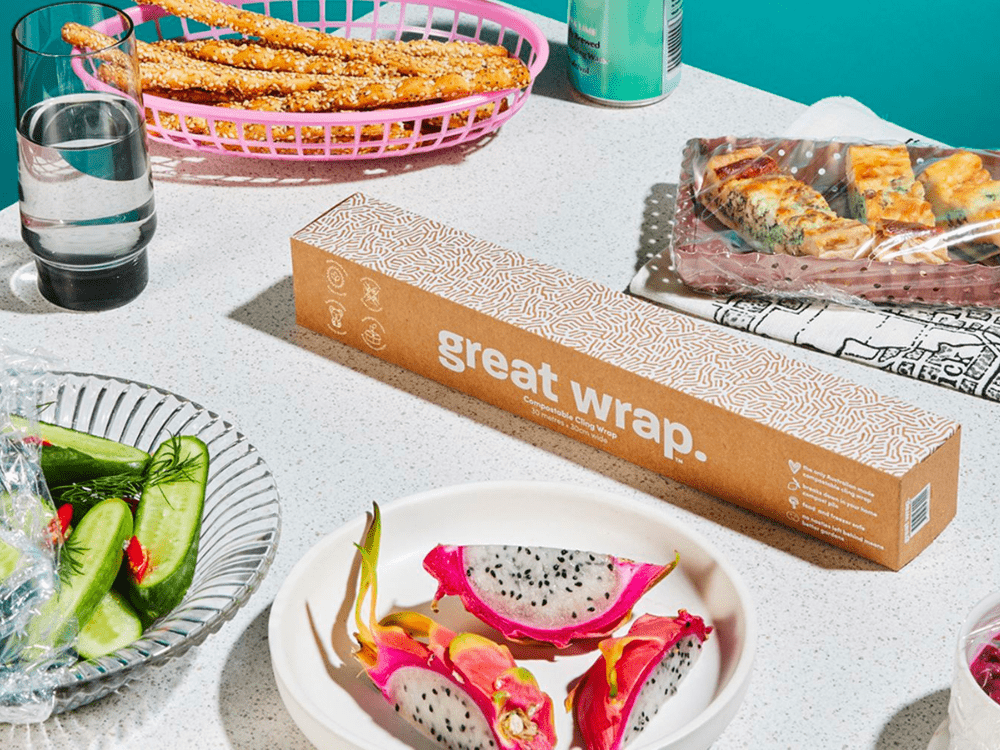It’s not uncommon these days to encounter products online and at the store that call themselves better for the planet but still come wrapped in plastic wrap, often because the cost of more eco-friendly materials is prohibitive for business.
Julia and Jordy Kay, co-founders of materials company Great Wrap, became keenly aware of this problem while working in their respective industries of architecture and winemaking.
“Great Wrap started really as a need for us,” says Julia Kay. “We were consumers of a pallet wrap product that we didn’t like and we didn’t want to continue to propel petroleum plastic waste.”
Driven by that factor, the Kays set out to reinvent plastic wrap using a more sustainable material and eventually landed on potato waste. The company diverts this from the landfill and turns it into a compostable wrap. The company has a consumer-facing cling wrap product as well as an industrial-grade pallet wrap available in Australia; Great Wrap just launched its consumer product in the US in August.
In July, the company closed a Series A round of funding.
Below, Julia Kay (JK) discusses the company’s journey up to now as well as its process and plans for the future.
AFN: What led you to start Great Wrap?
JK: Jordy [Kay] and I started the company about four years ago. Jordy was making wine and farming organically, I was working in architecture and design.
For the last 10 years, I’ve been close with the materials that we use to build and saw a huge amount of waste. Like I would specify the most sustainable timber I could find and it would arrive in plastic pallet wrap. Similarly for Jordy, he was making these beautiful organic wines and still wrapping them in petroleum-based plastic.
Great Wrap started really as a need for us — we were consumers of a pallet wrap product that we didn’t like and we didn’t want to propel petroleum plastic waste. So we said, ‘How can we reinvent this material?’ That kicked off this amazing research journey where we realized that the industry was incredibly fragmented and quite archaic. We realized that if we could disrupt this one product we could have a profound impact on plastic waste as a whole.
AFN: How did you come to choose potato byproduct as the key ingredient?
JK: We tried a lot of products. Then Jordy came across a paper about a starch conversion into a polymer and that’s really what kicked it off. We partnered with Monash University, one of the largest universities in Australia, and they’ve helped us create that pathway, which we’re now scaling up. We’ll be building our own refinery next year on site, so we’ll be processing local waste. And the plan is to duplicate that model in the States as well.
The process is like a batch extraction process input through a chemical process that makes it acts exactly the same as a polymer, but because it come from a natural product, when it goes into coils, it just breaks down in the water.
AFN: Which products are in which markets now?
We have two main products. The cling wrap is a direct-to-consumer product, for people at home. We wondered how we could get people thinking about plastic and pallet wrap and [decided to] use direct to consumer as a brand-building piece. That’s online at the moment in Australia — about 50,000 Australian homes using Great Wrap.
We’ve just opened the new manufacturing facility so that we’re able to manufacture pallet wrap. We were making 1,000 rolls a day at our previous factory and now we can make 100,000 rolls. So the B2B products we’ll be launching in October in Australia.
Then we’re launching the cling wrap for home in the US. We are having a few conversations with some retail partners too, but I think for the coming months [products] will be mainly through our website. And then I guess, within 12 to 18 months, the goal is to set up a facility [in the US] to be able to have that supply at a larger scale.
For us, we are concerned with the carbon footprint of that product — we don’t want to be shipping products across the world unnecessarily. And obviously, there’s a huge amount of [food] waste locally in America, so it makes sense to set up manufacturing here.
For me personally, it feels like my responsibility as a business owner to oversee the development of better products. There aren’t many people out there that want to specifically go out and totally protect the environment. So I do think it falls on us as business owners and consumers to really drive the products that we’re using.
In our experience, this goes back to the power of direct-to-consumer products. In Australia, the two largest supermarkets reached out to us directly just because there was so much interest from consumers.






